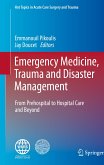Part I provides the reader with an overview of the role of neurosurgery in worldwide health care, its evolution over the past decades, the current state and future directions of each neurosurgical subspecialty across the five continents. Over the years, the overarching goal for neurosurgeons has been to develop new, more effective and high-end solutions for complex diseases and to provide access to neurosurgical services for all patients.
Part II discusses the differences and similarities of neurosurgery education and training across the globe, providing a snapshot of how new tools, technology, and paradigms reduce inequality and increase access to neurosurgical education. Educational accomplishments and challenges still present for the in different regions of the world are reviewed.
Part III focuses on economic aspects influencing neurosurgery globally, including how to make efficient decisions in the face of scarcity, yet demand. The authors provide theories, models, and tools helpful to apply when planning to allocate resources, not just financial, but also human and intellectual. A deeper understanding of economics does not necessarily provide the answer to the problem; rather it provides the tools to find ananswer, or, ideally, multiple possible solutions.
Neurosurgery and Global Health is the first comprehensive guide to the role of neurosurgery in the global health care sphere, providing an in-depth compendium about the understanding of the neurosurgical role within global health, its efforts in the education of tomorrow's workforce, and the economic aspects driving the field.
Dieser Download kann aus rechtlichen Gründen nur mit Rechnungsadresse in A, B, BG, CY, CZ, D, DK, EW, E, FIN, F, GR, HR, H, IRL, I, LT, L, LR, M, NL, PL, P, R, S, SLO, SK ausgeliefert werden.









